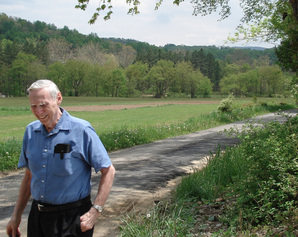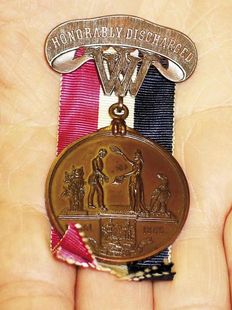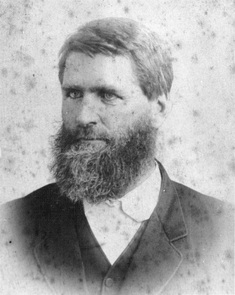
Author Robert Ours has an extensive background in both the history and journalism fields. Born in Parkersburg, WV in 1936, he earned a bachelor’s degree in journalism (cum laude) from West Virginia University, a master’s degree in history from the University of Virginia, and a doctorate in history from The College of William and Mary. He currently is Professor Emeritus of Journalism at West Virginia University, where he taught from 1972 through 1996. Among other positions, he previously was a general newsman for The Associated Press and taught history at the University of Virginia’s Eastern Shore Branch.
Ours has contributed articles and features to various publications. His books include The Choice Was Gray (2010); Bowl Games: College Football’s Greatest Tradition (2004); College Football Encyclopedia (4 editions, 1994-2002); and College Football Almanac (1984).
He may be contacted by email at: [email protected].
Ours has contributed articles and features to various publications. His books include The Choice Was Gray (2010); Bowl Games: College Football’s Greatest Tradition (2004); College Football Encyclopedia (4 editions, 1994-2002); and College Football Almanac (1984).
He may be contacted by email at: [email protected].
Their Choice Was Blue

The author’s paternal and maternal great grandfathers both served honorably in the Union army during the Civil War. Both were awarded the medal (at left) approved by the West Virginia Legislature in 1866 for all men who were honorably discharged after service in the Union army.
Paternal great grandfather Mearbeck (often spelled Maerbach) Ours served in the Upshur Battery (Battery E) of the 1st West Virginia Light Artillery from September 1862 until being mustered out on June 28, 1865. His position was an important one as handler of the combination sponge/plunger. One end of the wooden staff or pole was used to ram the powder and shell to the base of the bore, preparing the weapon for firing. The other end was a sponge soaked in water that was rotated clockwise and counterclockwise after each shot to rid the barrel of any sparks that might set off a premature explosion as the weapon was reloaded.
Mearbeck’s brother, Nicholas Ours, served in the same battery as an artificer, whose job was to keep the iron, wood and leather used by the crews in good order. Nicholas was primarily a saddler.
Both saw action at various times, but the unit’s major fighting was in the Shenandoah Valley in the summer of 1864. Mearbeck died on March 4, 1919, and was buried at Sago Cemetery in Upshur County. Nicholas was buried in the same cemetery.
Paternal great grandfather Mearbeck (often spelled Maerbach) Ours served in the Upshur Battery (Battery E) of the 1st West Virginia Light Artillery from September 1862 until being mustered out on June 28, 1865. His position was an important one as handler of the combination sponge/plunger. One end of the wooden staff or pole was used to ram the powder and shell to the base of the bore, preparing the weapon for firing. The other end was a sponge soaked in water that was rotated clockwise and counterclockwise after each shot to rid the barrel of any sparks that might set off a premature explosion as the weapon was reloaded.
Mearbeck’s brother, Nicholas Ours, served in the same battery as an artificer, whose job was to keep the iron, wood and leather used by the crews in good order. Nicholas was primarily a saddler.
Both saw action at various times, but the unit’s major fighting was in the Shenandoah Valley in the summer of 1864. Mearbeck died on March 4, 1919, and was buried at Sago Cemetery in Upshur County. Nicholas was buried in the same cemetery.

Maternal great grandfather Levi Cross served in Company H of the 10th West Virginia Infantry. Despite being married and the father of three sons, he was mustered into service at age 26 on June 20, 1863—the very day that West Virginia officially became the 35th state of the Union. His unit also saw major action in the Shenandoah Valley, taking part in several major engagements in the summer and autumn of 1864.
Levi was shot in the hand during the battle at Winchester on Sept. 19, 1864—the bullet perhaps coming from the weapon of a member of the Upshur Grays. In that battle, the 10th West Virginia was directly across the field from the remnants of the 25th Virginia Infantry, which included Upshur Grays survivors.
Although hospitalized for a time, Levi was mustered out of service as a Corporal on Aug.1, 1865. After the war, he became a minister, serving many years as a pastor in what is now the Methodist Church. He is buried in Stringtown Cemetery in Barbour County.
Levi was shot in the hand during the battle at Winchester on Sept. 19, 1864—the bullet perhaps coming from the weapon of a member of the Upshur Grays. In that battle, the 10th West Virginia was directly across the field from the remnants of the 25th Virginia Infantry, which included Upshur Grays survivors.
Although hospitalized for a time, Levi was mustered out of service as a Corporal on Aug.1, 1865. After the war, he became a minister, serving many years as a pastor in what is now the Methodist Church. He is buried in Stringtown Cemetery in Barbour County.